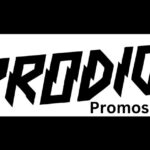Starting a consulting business in 2025 offers an incredible opportunity for individuals with specialised knowledge and skills. With businesses continually facing challenges, the need for expert advice is growing. As a consultant, you can tap into this demand, offering solutions in fields like marketing, finance, human resources, and more.
This guide will walk you through each step to launch a successful consulting business. Whether you’re just getting started or looking to expand, the strategies shared here will help you create a thriving consulting business in 2025.
Why Start a Consulting Business in 2025?
The demand for consultants has skyrocketed as businesses navigate rapid changes in technology, market trends, and global issues. Consulting offers flexibility and the chance to be your own boss. You can decide what industries or types of clients to work with. Plus, there’s the potential for high earnings and the satisfaction of solving real business problems.
In 2025, many businesses are looking for specialised advice to improve efficiency, adopt new technologies, or navigate new regulations. If you have expertise in any of these areas, now is the ideal time to start a consulting business and offer your knowledge to those in need.
Outline Your Business Plan
Creating a solid business plan is key to the success of your consulting business. A well-structured plan helps clarify your goals, services, and how you’ll stand out in a competitive market.
A strong business plan should cover:
- Business Overview: What is your niche? What makes your consulting services unique?
- Market Research: Who are your competitors? What needs do your potential clients have?
- Goals and Objectives: What are your short-term and long-term goals? How will you measure success?
- Marketing Strategy: How will you attract and retain clients? What channels will you use to market your services?
Here’s a simple table to help you visualise the key components of a business plan:
| Section | What to Include |
| Business Overview | Define your consulting niche and value proposition. |
| Market Research | Identify target clients and analyse competitors. |
| Goals & Objectives | Set clear, measurable goals for revenue, clients, and growth. |
| Marketing Strategy | Outline how you’ll reach your target audience (online, referrals, etc.). |
Build a Strong Brand Identity
Building a strong brand identity is crucial for attracting clients and standing out in a competitive market. Your brand should reflect your expertise, values, and the specific services you provide.
Start by choosing a business name that is easy to remember and aligns with your consulting services. Your logo should also be professional and visually represent the type of consulting you offer. Having a strong, recognizable brand helps clients trust you and positions you as an expert in your field.
Key elements to focus on:
- Logo Design: A professional logo that represents your niche.
- Brand Voice: How do you want your brand to sound? Friendly, professional, or authoritative?
- USP (Unique Selling Proposition): What sets you apart from other consultants in the market? What makes your services unique?
A well-developed brand identity ensures that potential clients can quickly identify your business and understand what you offer.
Determine Your Services and Pricing Strategy
When launching your consulting business, it’s important to clearly define the services you will offer. Think about your areas of expertise and how they can solve problems for your target audience. Whether it’s management consulting, digital marketing, or financial advising, the more specific you are about your services, the better.
Once you’ve defined your services, decide on a pricing strategy that reflects the value you provide. Here are some options to consider:
- Hourly Rate: Charge clients based on the time spent working on their projects.
- Flat Fees: Set a fixed price for a specific service or project.
- Monthly Retainers: Offer ongoing consulting services for a regular fee.
Consider researching what other consultants in your field are charging to help determine competitive pricing.
Register Your Consulting Business
Now that you’ve chosen your business structure and created a plan, it’s time to register your business. Choose a unique name for your business and check its availability. Register the name with the appropriate government office and obtain any necessary licences.
Consulting businesses may require different licences depending on your area of expertise. For example, financial consultants often need certifications to offer certain services. Be sure to research local and state regulations to ensure you’re fully compliant.
Create an Effective Consulting Website
A professional website is an essential tool for attracting clients. Your website should clearly outline your services, highlight your expertise, and provide an easy way for potential clients to contact you. Focus on creating an easy-to-navigate design that reflects your brand identity and conveys professionalism.
Key pages to include:
- Home Page: Brief introduction and overview of your services.
- About Page: Share your qualifications and experience to build trust.
- Services Page: Detail the specific services you offer and your pricing structure.
- Contact Page: Provide a contact form or your contact information so clients can reach out easily.
Build Your Network and Reputation
Networking is essential for growing your consulting business. Reach out to industry professionals and potential clients through platforms like LinkedIn, attend industry events, and make connections. This will help you get your name out there and build a solid client base.
It’s also crucial to build a strong reputation. Deliver high-quality work, ask for client referrals, and share case studies or testimonials that demonstrate the value you provide. Over time, a strong network and good reputation will lead to more business opportunities.
Market Your Consulting Business
Effective marketing is necessary to grow your consulting business. You can use a combination of digital marketing, referrals, and networking to attract clients.
Here are some marketing strategies to consider:
- Content Marketing: Write blog posts, create videos, and share helpful tips on social media to demonstrate your expertise.
- SEO: Optimise your website so it ranks higher on search engines, making it easier for clients to find you.
- Paid Advertising: Use platforms like Google Ads or LinkedIn to target your ideal clients.
For consulting businesses, word of mouth referrals are incredibly powerful. Providing excellent service can result in satisfied clients recommending you to others.
Manage Your Finances and Legal Aspects
Once your consulting business is up and running, it’s essential to manage your finances properly. Keep track of your income and expenses, and make sure to set aside money for taxes. Using accounting software or hiring an accountant can make this process easier.
From a legal standpoint, ensure that you have contracts in place for each client. These contracts should clearly outline the terms of your service, timelines, and pricing. Consulting with a lawyer can help ensure that your business is legally protected.
Conclusion
Starting a consulting business in 2025 offers significant opportunities for individuals with the right expertise. By following the steps outlined in this guide such as creating a detailed business plan, building a strong brand identity, and marketing effectively you can set up a consulting business that thrives in the competitive market.
Building a solid reputation and continuously improving your services will ensure long-term success. With the right approach, your consulting business will be well-positioned to help clients succeed in 2025 and beyond.
Frequently Asked Question
How much does it cost to start a consulting business?
The cost to start a consulting business can vary depending on factors such as your niche, business location, and the tools you need. Generally, it can range from a few hundred dollars for basic setup (like registering your business, getting a website, and marketing materials) to several thousand dollars if you require specialised software, certifications, or office space. Starting online or from home can significantly reduce costs.
Can I start a consulting business by myself?
Yes, you can absolutely start a consulting business on your own. Many successful consultants begin as solo entrepreneurs. The key is to focus on your expertise, build a strong personal brand, and network effectively. As your business grows, you can decide if you want to expand and hire employees or other consultants.
How do I set up myself as a consultant?
To set yourself up as a consultant, start by defining your area of expertise, identifying your target market, and creating a solid business plan. Next, register your business, set up a website, and create contracts for client work. Building your brand and network will help you gain credibility and attract clients. Ensure that you stay updated on industry trends and continuously improve your skills.
How profitable is a consulting business?
A consulting business can be highly profitable, depending on your niche, expertise, and client base. Many consultants charge high hourly or project-based rates, making it possible to earn a significant income. Profitability also depends on factors like business overhead, marketing strategies, and how well you can attract and retain clients. With the right approach, consulting can offer both financial success and personal fulfilment.

Michael Leo is a seasoned entrepreneur with a passion for business growth and innovation. With years of experience in driving success across industries, he specializes in crafting strategies that deliver results. Michael’s expertise lies in leadership, problem-solving, and leveraging market trends to maximize opportunities. His mission is to empower businesses to reach their full potential through tailored solutions and actionable insights.




